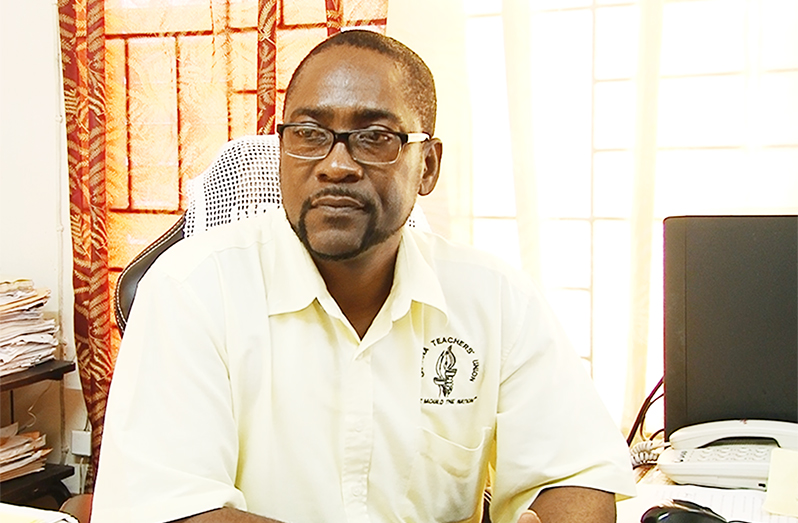EDUCATION Minister, Priya Manickchand, has called for the Guyana Teachers’ Union (GTU) to be recaptured from “rogue elements” that have compromised the integrity and operation of the decades-old organisation.
Her statement comes amid protracted disputes about teachers’ welfare, including wages and salaries, between the union and the government.
Minister Manickchand voiced her concerns about the current state of the GTU during a recent episode of The Guyana Dialogue. She made it clear that a political faction within the union has been operating against the interests of both teachers and learners alike.
Manickchand does not believe all union members are political, even though she thinks the union is following orders from its political overlords.
“I don’t hold the view that every union member is political. I don’t hold the view that every executive member is acting based on political instructions. But I believe there are rouge elements in the Guyana Teachers’ Union and the union needs to be recaptured from them.”

According to the GTU, teachers went on strike on February 5, 2024, over several issues, including the government’s alleged refusal to negotiate improved working conditions and compensation.
This is despite, in just three years, the Ministry of Education has implemented 33 of the 41 recommendations the GTU made for improvement of teachers’ welfare.
On March 4, 2024, the strike was finally called off because both parties had agreed to settle their differences through mediation that was ordered by High Court Judge, Justice Sandil Kissoon.
By March 6, teachers were back in the classroom. Concerning the legal proceedings the GTU had filed against the government, Attorney General Anil Nandlall, SC filed an appeal challenging Justice Kissoon’s ruling that the strike was “legal and justifiable”.
The government’s decision to deduct pay from striking teachers and its plan to stop deducting union dues from teachers’ salaries were both challenged in court by the union.
The aforementioned actions have been declared unlawful by the court.
In his decision, Justice Kissoon held that the teachers’ strike was legitimate since collective bargaining between the Ministry of Education and the union had not been properly undertaken.
The judge stated that there was evidence to show that the government failed to engage the union in collective bargaining, unilaterally forced salary hikes on teachers, and snubbed or rebuffed the union’s “every attempt” to negotiate collectively, as envisaged by Article 147 (3) of the Constitution of Guyana. That constitutional provision stipulates that neither an employer nor a trade union shall be denied the right to enter into collective bargaining.
The education minister declared that “there was no need for a strike” because the government had granted more than half of the GTU’s requests and was working to provide the remainder.

According to her, teachers’ pay, duty-free concessions, scholarships, and other privileges have increased significantly under the PPP/C administration compared to the A Partnership for National Unity + Alliance for Change (APNU+AFC) coalition government.
She reminded that a massive strike resulted from the APNU+AFC’s refusal to continue offering these benefits to teachers after they took office in 2015.
Recently, the government and the GTU have been engaged in a series of contentious talks concerning salary increases. With a goal of pressuring the government into negotiating compensation hikes for the years 2019 to 2023—a proposal the government has already rejected—the teachers’ strike has resumed. Teachers have contended that their working conditions are inadequate and that their pay has not increased in line with inflation.
The government has insisted that it will only talk about pay increases for 2024.
Furthermore, the government has insisted that GTU’s General Secretary, Coretta McDonald, an Opposition Member of Parliament, is the political force behind the strike.
Given the circumstances, Minister Manickchand has accused the union of exploiting teachers.
She noted that teachers should not be requesting salary increases for the periods when they were not working due to the COVID-19 pandemic and when the PPP/C was not in office.
Meanwhile, pending the hearing and determination of the appeal, the government has petitioned the Court of Appeal of Guyana to stay (suspend) Justice Kissoon’s ruling.
The Attorney General had previously voiced serious worries about the legal validity of the ruling and expressed concerns about the potential consequences it could have on future labour relations. He vehemently labelled the decision as “bad in law,” stressing its profound impact on the nation’s educational landscape and broader labour dynamics.



.jpg)









